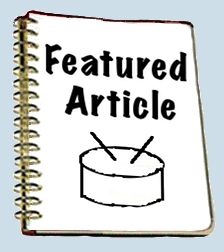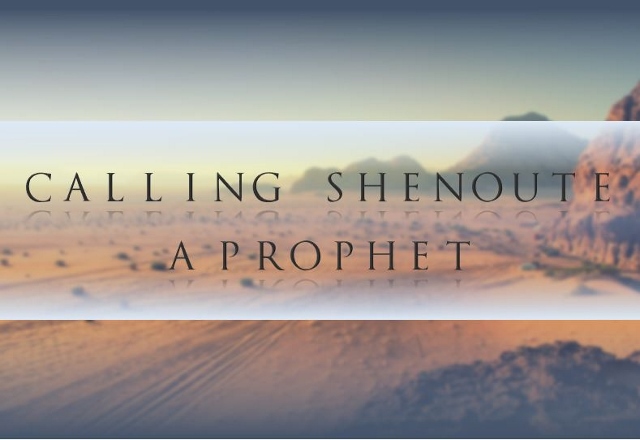I am not sure that Shenoute ever explicitly called himself a prophet, but others have used the label for him frequently. What have they meant in doing so? Already in antiquity Shenoute's first biographers called him a prophet. To be sure, disciples and admirers of other monks called their heroes prophets or compared them to …
I am not sure that Shenoute ever explicitly called himself a prophet, but others have used the label for him frequently. What have they meant in doing so? Already in antiquity Shenoute’s first biographers called him a prophet. To be sure, disciples and admirers of other monks called their heroes prophets or compared them to the biblical prophets,” but this fact does not obviate an analysis of what followers of Shenoute in particular meant by this title.
The Bohairic Life repeatedly refers to Shenoute simply as ‘the prophet’. The boy Shenoute’s relationship to Pcol, the founder of the White Monastery, recalls that of the young Samuel to Eli, and Pcol receives miraculously Elijah’s mantle to place upon his young charge. Shenoute, we are told, performed ‘signs’ just as the prophets and apostles did. Like the prophets of ancient Israel, Shenoute advocates in behalf of the poor and the captive, destroys idols and confronts their worshipers, and even helps military leaders defeat barbarians by lending them a leather belt.
These implicit and explicit strategies of biblical typology conforms Shenoute’s world to that of the Bible and confirm that Shenoute was a prophet,” But the heart of Shenoute’s prophetic identity in the Life is his visionary gift: Shenoute sees and knows more than ordinary people. Divine and heroic beings appear regularly to give messages to Shenoute or simply to talk to him, including the Virgin Mary, Jeremiah, Ezekiel, David (‘the prophet’), and Jesus himself. When people doubt that Shenoute is a prophet, it is his clairvoyant knowledge that persuades them. For example, a man leaves some gold with a friend and goes to test the character of Shenoute, who promptly reveals his knowledge of the plot, including the very words that the man said to his friend. The man proclaims, “Truly, I know today that there is a prophet in this monastery, just as I have seen it with my own eyes”. A young monk named John, scoffs when his master calls Shenoute a prophet, saying, “In truth, he does not even know what he ate this evening!” Shenoute later seizes the doubting monk and warns, “Truly, John, Shenoute does not know what he ate this evening, but on the Day of Judgment, this miserable body which is now talking to you will sit down with the apostles to judge with them.” John throws himself down before Shenoute and begs for forgiveness.
It is not merely that Shenoute knows what people are thinking or have said when he was not present, but Shenoute knows the sins that they have committed. And so on a visit to Constantinople, Shenoute knows when the monks who are accompanying him complain of thirst, but more importantly he refuses to bless a prominent senator in the presence of the emperor, asking, “Do you want me to give my hand to a man who defiles the temple of God with his abominable works?” The emperor “glorified God and his holy prophet apa Shenoute”. Ironically in light of the incident with which I began, Shenoute reveals the identity of the thieves who ransacked the house of a wealthy businessman.
Despite the historical Shenoute’s protest to the contrary, the Life clearly thinks that he was in fact ‘that kind of person’. The Life is not shy about its claims for Shenoute’s knowledge: “When he was in his monastery, he would see a multitude of sins being committed throughout the whole world, and of those who came to him, he used to know all that they had thought and done. He would therefore pray for them all, so that they might be saved and find mercy at the tribunal of Christ”.
Shenoute preaches repentance on earth and intercedes for sinners at the divine court? Exposing sins, pronouncing judgment, interceding with Christ, as well as helping people with practical problems – these are the tasks of the prophet Shenoute, made possible by his clairvoyance, according. to the Life of Shenoute.
Join Us: Sign Up Today!
Tags:











